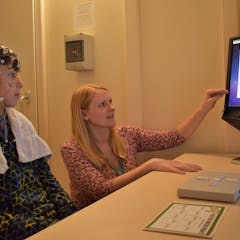
Articles on Dyslexia
Displaying 1 - 20 of 38 articles

Neurodivergent employees can have specific needs. Inclusion in the workplace means businesses and employers need to consider differences that may not be visible to outsiders.

A report from the Saskatchewan Human Rights Commission outlines government and school responsibilities for educating students with disabilities and calls for changes in reading instruction.

Establishing an inclusive and accommodating work environment for people with dyslexia can foster a diverse workforce and improve productivity, innovation and performance.

The claims made by the creators of the app – which highlights parts of words to supposedly enhance users’ reading abilities – are dubious.

Direct instruction matters in learning to read, but reading can’t happen unless children are supported in making connections to what they know and their experiences.

While only about 20% of people would qualify for a formal diagnosis of a mental disorder, more than 60% express symptoms of those disorders – and those symptoms can lead to cognitive difficulties.

Children with dyslexia seem to find it more difficult to judge the direction of moving dots - this could explain why reading is also more challenging.

These children are not getting the help they need to thrive at school and at home.

Despite progress in promoting workplace diversity, prejudices keep the employment prospects for neurodiverse individuals shockingly low.

It might seem like nostalgic escapism, but the show has a revisionist impulse at its heart.

Early intervention with reading challenges has very high success rates for supporting reading development, but it is much more difficult to improve reading skills in older students.

But there is an answer.

Based on the current body of evidence, the use of coloured filters should not be recommended as a dyslexia treatment, nor be provided through publicly funded bodies.

Finger counting and struggling to tell the time or use a calendar are all typical signs of dyscalculia – sometimes called ‘maths dyslexia’.

It’s important for the child and their achievement at school that there is a good parent-teacher-student partnership.

Teachers’ understanding of dyslexia is mostly limited to behaviour, new survey finds.

Never underestimate a person with dyslexia - the skills and strategies they’ve developed to survive academia can be the right fit for effective communication.

Dyslexia affects up to 10% of the population, but until recently it was thought to be a pseudo-medical diagnosis used by parents to explain their children’s poor performance in reading.

The story of a six-year-old boy with dyslexia who, with support from friends and teachers, became a successful professor. Now he teaches teachers how to help children like him.

Can disturbed sleep patterns have an impact on a child’s ability to acquire language and vocabulary?
